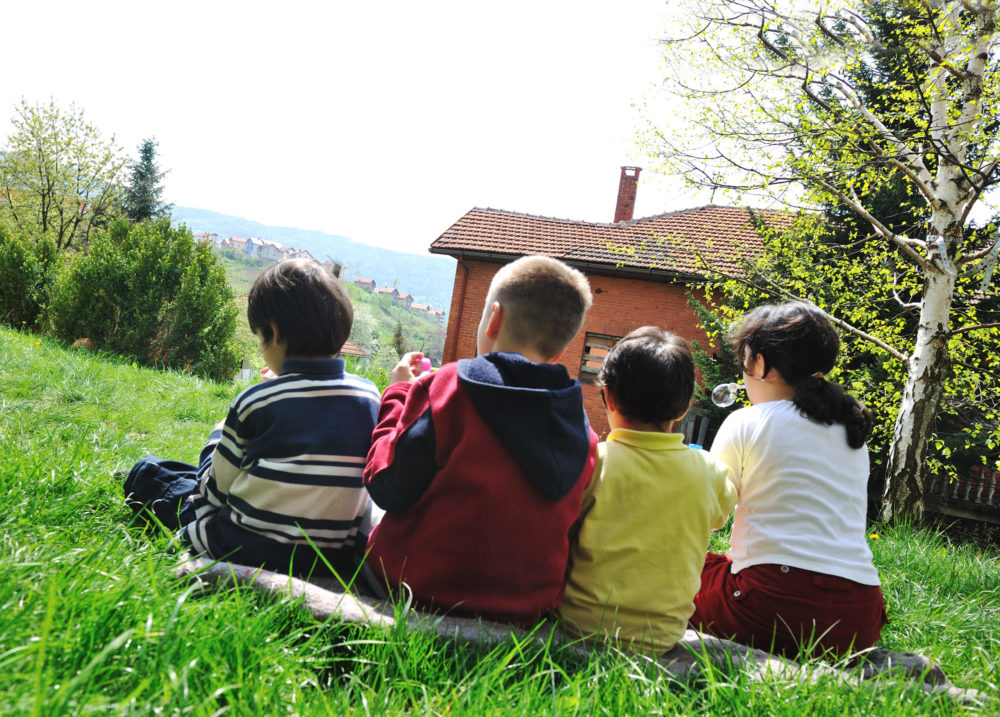Human beings are not robots, nor should our education system act as one. The years we spend in grade school are the years where our characters are being built, and we’re constantly changing and growing. Add to that all the pressures of “fitting in” for middle schoolers, or heck, my kids were experiencing those pressures in elementary school, and you have a society full of people not knowing who they really are.
A lot of that can be prevented with a proper education that doesn’t just teach the three R’s (reading, writing, arithmetic) but places high importance on encouraging creativity, critical thinking, and independent thinking. It should also teach kids about different cultures and lifestyles so that we can all be more understanding and tolerant of others. We need to educate the whole child, not just their mind.
Rarely will you see this in a public school setting. However, some independent and private schools believe a school should educate the whole child, establishing a solid basis for academic, physical, moral, social, and spiritual development.
An article in The Atlantic, “The Case for a Whole-Child Education,” argues that our education system is “stuck in an industrial-era model” designed to create a workforce for the factories of the early 20th century. This model focuses on standardized tests and rote learning rather than encouraging creativity, critical thinking, and independent thinking.
The article says that “a whole-child education is not only possible, but it’s also necessary if we want to prepare young people for the world they will inherit.” I couldn’t agree more.
What does it mean to educate the whole person?
The education of the whole person is about more than self-actualization; it also attempts to cultivate students’ social, emotional, physical, and ethical development, to foster creativity, promote psychological well-being, stimulate a rich and thoughtful interior life, explore core beliefs, encourage social responsibility, and teach practical skills—in short, to shape young people into adults who are not just successful but also good.
A whole-child education rejects the false dichotomy between academic learning and so-called “life skills.” It acknowledges that all aspects of human experience are interconnected and that an education that neglects any one dimension of the person is ultimately deficient. A whole-child education cultivates the whole person—body, mind, and spirit—and does so to create a more just, humane, and sustainable world.
My children have been in the public school system, which has been wonderful as I have been a very involved parent. However, as they move into middle school, the less the parents are welcome, at least by their kids. Although, I am fairly sure some middle school teachers would love to have some of us parents around to help! As a result, it has always been important to me to fill in the gaps in educating my “whole child.”
When my children were little, I made it a point to get them involved in as many youth programs as possible, then let them choose what they liked best—additionally, keeping in mind not to overwhelm them or me with too many scheduled activities.
However, I did have specific groups that I had them in the entire time, like Scouts for personal development, religious youth groups for their spiritual condition, and at least one sport for physical health and how to work as a team.
The YMCA was great for them as tots learning the basics of sports and character building. Additionally, we volunteered at their school and were contributing members of that “community.” And, of course, placing importance on their education as well.
What is the responsibility of the family and community in the development of a child?
Ultimately, the family will be responsible for shaping a child and influencing their values, skills, socialization, and security during these childhood development stages.
When a family communicates and behaves in healthy ways, children learn how to do the same. Conversely, when families are not functioning well, it can harm children’s development. A child’s community also plays an essential role in their development. The community provides resources and opportunities for children to interact with others and learn new skills.
Positive family and community influences during childhood can help children develop a sense of belonging, improve their self-esteem, and feel more capable of dealing with life’s challenges.
As a parent myself, I have found that it is crucial to be involved in my child’s education and to partner with the school to ensure that my child is getting the best education possible. In addition, being involved in the community and providing opportunities for my child to interact with other people and learn new skills is also essential.
As a writer by trade, I went as far as to pick up a freelance position writing for the local paper to become more knowledgeable about our community, its needs, and its future. Not everyone has that ability; however, you can do things like:
- Attend monthly town hall meetings
- Enroll in a program of interest at your local library
- Volunteer at a community outreach initiative
- Volunteer with the schools
- Volunteer at your community place of worship
The options are endless, but the key is to get involved and be an active member of your community. When you do this, you not only help to shape the future of your community, but you also help to ensure that your child grows up to be a well-rounded individual.
Importance of educating the whole child
In conclusion, it is important to educate the whole child – body, mind, and spirit. By getting involved in your child’s education and community, you can help ensure that your child grows up to be a well-rounded individual.
There are many options if you are looking for ways to do so, such as youth programs. Some programs, like Scouts or religious youth groups, have a long history and plenty of data to show their effectiveness. Other programs, like sports leagues or afterschool clubs, may not have as much data available but can still benefit you and your family. The important thing is to find something that works for you and your child and to commit to it. Then, with a little effort, you can make a big difference in your child’s life.


